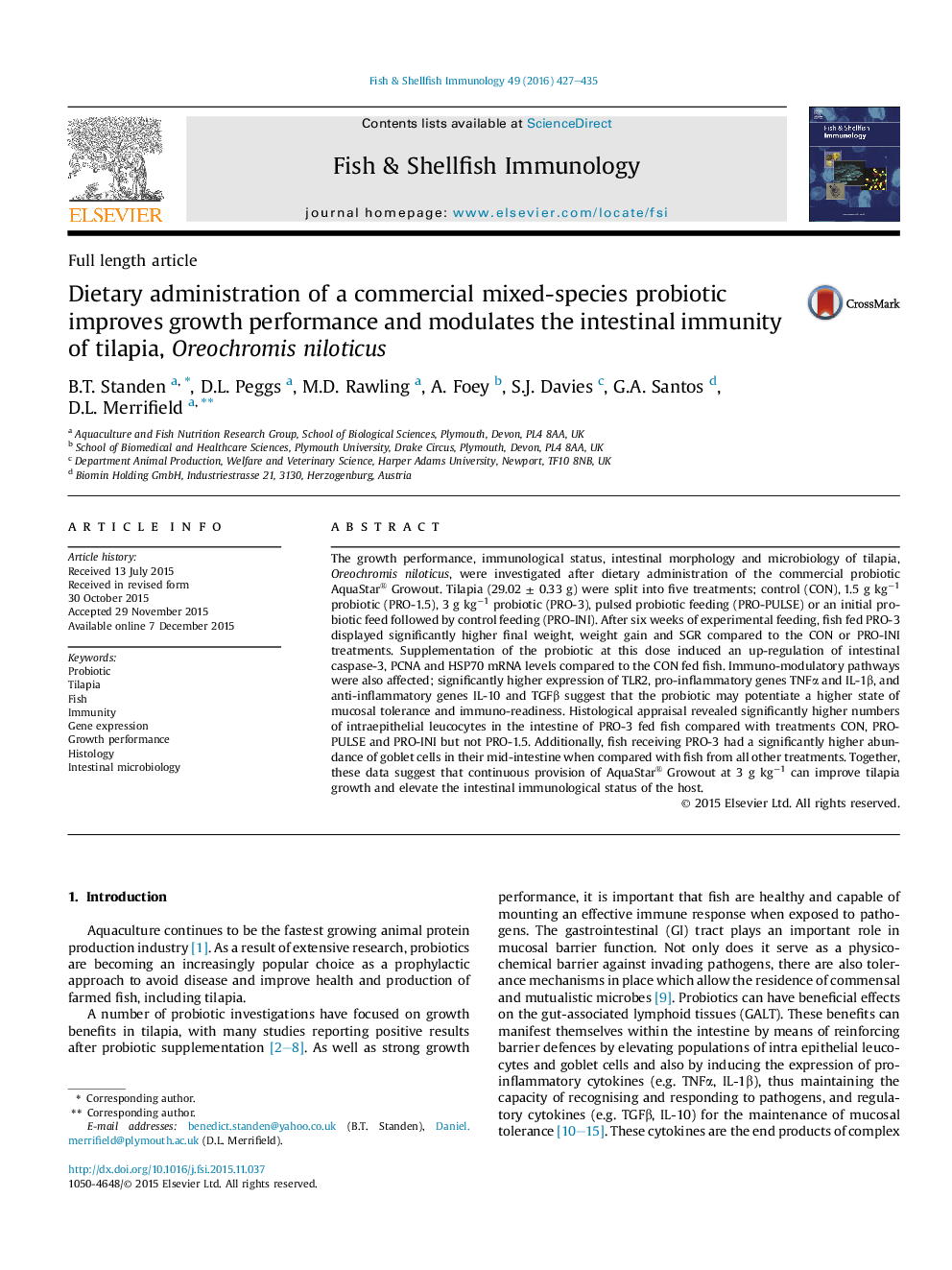| Article ID | Journal | Published Year | Pages | File Type |
|---|---|---|---|---|
| 8499502 | Fish & Shellfish Immunology | 2016 | 9 Pages |
Abstract
The growth performance, immunological status, intestinal morphology and microbiology of tilapia, Oreochromis niloticus, were investigated after dietary administration of the commercial probiotic AquaStar® Growout. Tilapia (29.02 ± 0.33 g) were split into five treatments; control (CON), 1.5 g kgâ1 probiotic (PRO-1.5), 3 g kgâ1 probiotic (PRO-3), pulsed probiotic feeding (PRO-PULSE) or an initial probiotic feed followed by control feeding (PRO-INI). After six weeks of experimental feeding, fish fed PRO-3 displayed significantly higher final weight, weight gain and SGR compared to the CON or PRO-INI treatments. Supplementation of the probiotic at this dose induced an up-regulation of intestinal caspase-3, PCNA and HSP70 mRNA levels compared to the CON fed fish. Immuno-modulatory pathways were also affected; significantly higher expression of TLR2, pro-inflammatory genes TNFα and IL-1β, and anti-inflammatory genes IL-10 and TGFβ suggest that the probiotic may potentiate a higher state of mucosal tolerance and immuno-readiness. Histological appraisal revealed significantly higher numbers of intraepithelial leucocytes in the intestine of PRO-3 fed fish compared with treatments CON, PRO-PULSE and PRO-INI but not PRO-1.5. Additionally, fish receiving PRO-3 had a significantly higher abundance of goblet cells in their mid-intestine when compared with fish from all other treatments. Together, these data suggest that continuous provision of AquaStar® Growout at 3 g kgâ1 can improve tilapia growth and elevate the intestinal immunological status of the host.
Related Topics
Life Sciences
Agricultural and Biological Sciences
Aquatic Science
Authors
B.T. Standen, D.L. Peggs, M.D. Rawling, A. Foey, S.J. Davies, G.A. Santos, D.L. Merrifield,
